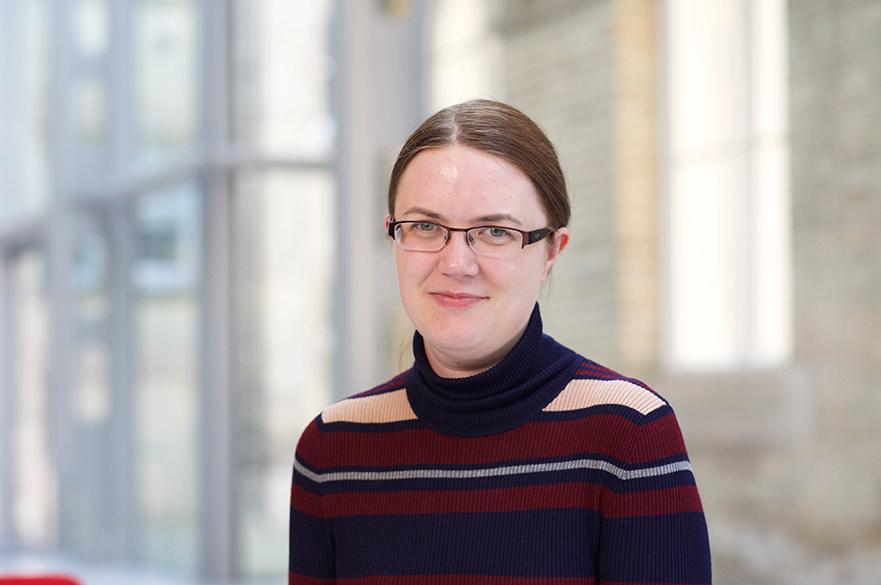Centre
Centre for Interdisciplinary Research on Social Interaction
Unit(s) of assessment: Psychology, Psychiatry and Neuroscience
Research theme(s): Health Innovation
School: School of Social Sciences
Overview
The Centre for Interdisciplinary Research on Social Interaction (CROS) is an interdisciplinary grouping of researchers from across NTU interested in the phenomenon of social interaction.
We analyse social interaction from multiple perspectives aiming to understand the mechanisms, function, evolutionary origins and applied consequences of social connections. We seek to forge links between diverse disciplinary groups, adding value by breaking down disciplinary boundaries, stimulating creative thinking, and sharing expertise.
The Centre has attracted funding from the European Research Council, Arts and Humanities Research Council, Leverhulme Trust, British Academy. Wenner-Gren Foundation, Leakey Foundation, National Science Foundation and various other charity and third sector funding.
Research groups
The following research groups are part of this research centre:
Evolution and Social Interaction Research Group
The Evolution and Social Interaction Research Group’s aim is to further our understanding of human and non-human animal social interaction and how and why these behaviours have been moulded by evolution.
Groups, Identities and Health
The Groups, Identities and Health research group investigates the ways in which social identities impact upon the health and wellbeing of their group members. We examine groups across a wide range of community, healthcare and educational contexts to examine how social identities can shape members’ perceptions and experiences, how identities facilitate or impede helping behaviour and how groups serve to support or undermine individual and collective resilience.
Bullying and Aggressive Behaviour
The Bullying and Aggressive Behaviour research group are concerned with projects that explore a range of aggressive behaviours associated psychological impacts.
LGBTQ+ Health and Wellbeing Research Group
The LGBTQ+ Health and Wellbeing Research Group aims to better understand the lives of this community, especially the minority stress they may experience and, the consequential adverse health outcomes.
Selected projects
Read about some of our externally funded work:
Press coverage
Facially expressive primates make better leaders
Wed 17 Jul 2024
Facially expressive people shown to be more likeable and socially successful
Thu 13 Jun 2024
Monkey mothers shown to put babies at risk during drought
Tue 12 Mar 2024
Do meerkats empathise with people? Researchers investigate whether the social animals detect and respond to human emotion
Mon 25 Sep 2023
Dr Yuri Kawaguchi wins prestigious fellowship to join NTU Psychology research centre on two-year collaboration
Tue 7 Mar 2023
Having strong social connections can improve your health, according to global study
Mon 16 Jan 2023
Humans may have evolved to show signs of stress to evoke support from others
Mon 16 May 2022
NTU to support expansion of Nottinghamshire initiative to improve wellbeing and increase social connectedness
Tue 22 Mar 2022
Eating disorder symptoms shown to be reduced in those with strong family identification
Tue 1 Mar 2022
Feverish monkeys get kicked when they’re down – new study explores illness and aggression in wild primates
Wed 13 Oct 2021
Research Reimagined Podcast
Listen to this Transgender Day of Visibility special episode of the Re:search Re:imagined podcast. This time, we're joined by Dr Seema Patel and Dr Beth Jones, discussing the legal and psychological barriers for trans athletes.
Anti-Bullying Week 2023: Resources for teachers and Podcast episode
Researchers from NTU’s School of Social Sciences have supported the Anti-Bullying Alliance to develop a suite of free resources which will help to bring this year's theme to life in primary and secondary schools across the UK. The researchers have also created a special episode of NTU’s Re:search Re:imagined podcast, with useful tips and advice for teachers on how to spot the difference between bullying and banter.
Researchers propose radical change in how animal facial expressions are defined and studied
5 October 2023
A new approach to analysing facial expressions has been created to help better understand animal behaviour. Read this article published by the University of Portsmouth.
Centre staff

The Centre Director is Professor Bridget Waller.
If you're interested in collaborating with us, or want to enquire about PhD funding opportunities, please email bridget.waller@ntu.ac.uk.

The Deputy Centre Director is Associate Professor Niamh McNamara.